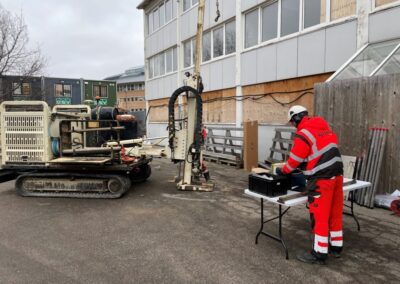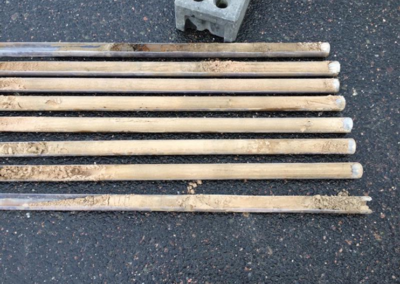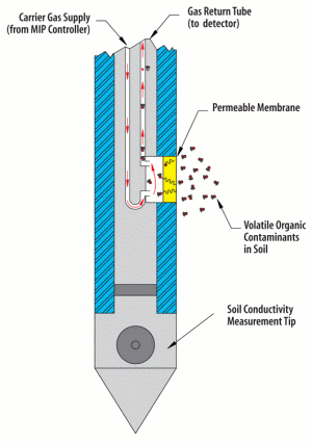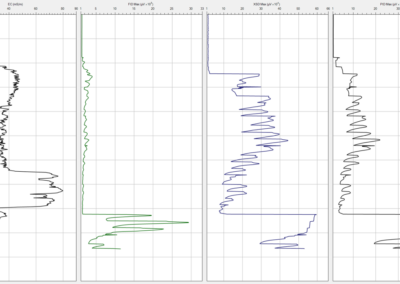Direct Push and Direct Sensing Probing
Each site or property sits above different geological settings.
Any present contamination spreads according to the chemical and physical properties of the specific contaminant while the hydrogeological settings simply provide the means for how the contamination spreads.
Delineating vertical and lateral delineation of the contamination is not an easy task but with the right tools and approach much can be learned about the contamination conditions at a site.
Ejlskov offers multiple options starting with 4 different Geoprobe drilling machines (including a limited access machine capable of fitting within less than one meter wide and 2.1 meters high spaces) and a one small size frosted auger drilling machine. (Drilling-rigs.pdf (ejlskov.com))
As Geoprobe machines constitute our main supply for drilling, we use all the main toolings made available for direct push and direct sensing probing.
- 2 MIP systems including Low Level system
- Pneumatic Slug Test (PST) kit for collection of real time measures of “k” values
- Dual Tube tooling for conduction of soil coring (2.25”, 3.25”, Macro-core) and installation of monitoring wells (from 25 mm to 63 mm OD)
- Soil gas probing
- SP16 system for collection of groundwater samples (spot samples) without leaving fixed monitoring wells
OIP, OIP-G and MIPHPT probes can also be made available.
The use of MIP allows us to provide an initial qualitative screening of the contaminant distribution and geological conditions at a site. As any other tool in our toolbox, we understand which limitations the MIP may have (specific geological settings, type of contaminants). This is why it is important to remember when it is time to move to collection of quantitative data which can provide clear evidence of the right level of contamination or geological conditions at the site.
The use of dual tube/direct push tooling allows reducing the risk of cross contamination to minimum levels as the soil is displaced while cores are collected, or groundwater monitoring wells installed. The lack of drilling fluids ensures that no smearing of possible contamination off the soil or dilution of groundwater contamination is created.
Undisturbed soil samples can therefore be collected, and representative data can be generated as MIP profiles can be validated more consistently by use of our unique “free of charge” laboratory support through our US based partners at RPI Inc.



